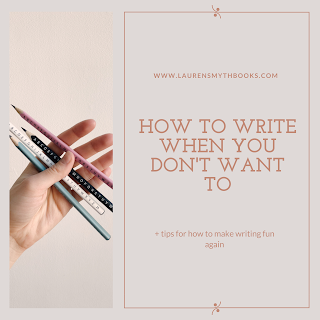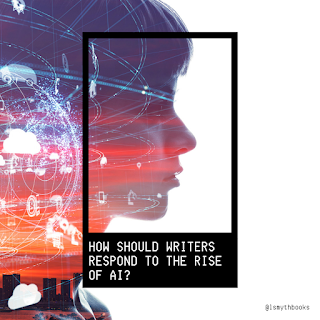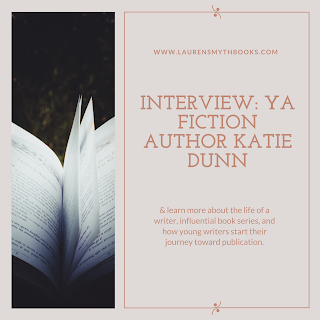How to Write When You Don't Want To
Admit it, we've all been there. Faced with a mountain of papers that need editing, a three-hundred page book that needs finishing, or a school project that needs polishing, you suddenly realize you don't like writing anymore. Maybe you wish you'd picked another career, or no career at all. And you can't help but wonder, what happened to the days when you would've enthusiastically pounced on these projects?
Even if you know it'll get better - that your enthusiasm will come back as soon as the deadline's passed and the work is done - you also know that you'll have to do it again. And again. If you want to be a writer, deadlines are inescapable.
So how do your force yourself to write? More importantly, how do you force yourself to enjoy it?
1. Take breaks.
Research suggests that people can only focus on a single task for about forty-five minutes at a time. However, once you're fully immersed in a project, this time period may feel too short. So, about every forty-five minutes to an hour, take a ten-minute break. Be sure to set a timer so you don't feel guilty about taking a break, or accidentally extend the break more than you intended. (I recommend the Study Bunny timer for this, as I'm apparently a sucker for cute drawings of rabbits.) During your break, focus on something completely different from the original project, such as a book you're reading, a game you're playing, or simple exercise.
2. Plan time to work; plan time to rest.
This is key. Think about your days ahead of time and make sure you have enough time to finish your project so you don't get stressed at the last minute. But it's equally as important to make sure you have time to stop, drop, and find something else to do. This "something else" doesn't have to be a pure leisure activity if you don't feel you have time for that. It should just be something different than the main project you're working on. Personally, I like to plan a "stop time" in the evening, where I switch from my daily work to something that also needs to be done but is more relaxing, such as cleaning, working out, etc.
3. Don't forget about people.
If you lean toward introversion, like me, you may find it's easy to hole up in your room all day and eat chips from your closet. However, this isn't a sound strategy. It's important to communicate with people even while you're working so you don't get stuck in your own head. When you work alone for too long, intrusive thoughts start creeping in - "is this really worth it?" "Will I ever finish this?" Make sure to leave some time to shift your focus outside your own head, even if that's just shooting your friend a quick text and picture of your messy desk.
4. Don't work in complete silence.
Working in silence is another surefire way to trigger disruptive thoughts. I like to use soundtracks as my background noise, especially if I'm writing, because they trigger positive memories of the stories I associate them with. But everyone's taste is different. Some people like music with words; others don't. Some people prefer white noise like traffic or water instead of music.
5. Surround yourself with inspiration from your completed projects.
What are you proud of? What have you completed in the past? Remind yourself that you can do it because you have done it.
6. Find some role models.
Is there a book you admire? A famous person who said something inspirational that resonates with you? A video game with a plot you wish you could live out in real life? Don't be afraid to use other people's work as inspiration for your own. Put posters on your pin board. Get a fandom t-shirt. Write quotes on post-its and put them on your wall. Do whatever you need to feel motivated. Be an unashamed fangirl/boy.
The first four tips will help you get the work done; the last two will help you enjoy it.
Above all, it's important to have set goals and reasons for the work you do, even if they're simple reasons such as "I want to pay my bills" or "I promised someone I would do this." Your reasons don't have to be unique or unselfish. They just have to be clear.
Finally, one last tip for successful writing - if you need beta readers, instructions, or simply motivation, keep exploring this website. You're sure to find something you'll enjoy!
Looking for some writing partners? Visit the subreddit and join a brand-new community of writers and readers!



Comments
Post a Comment